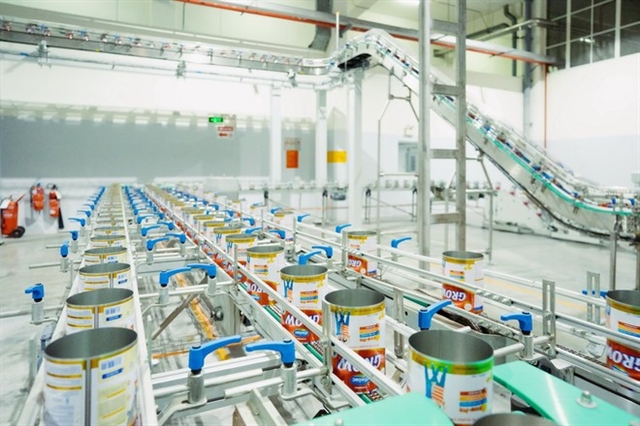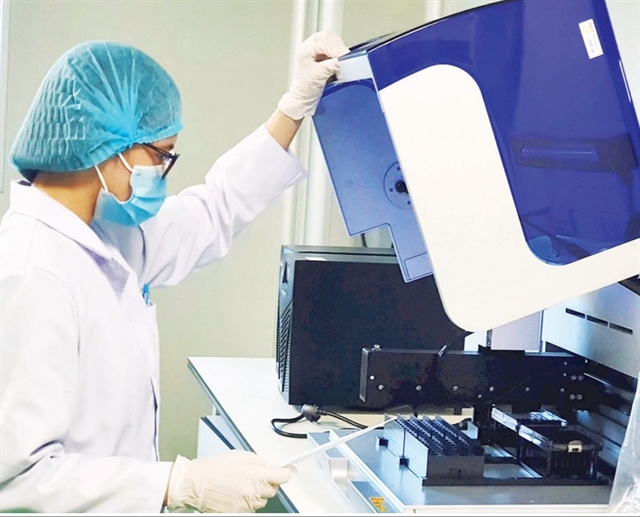 Society
Society
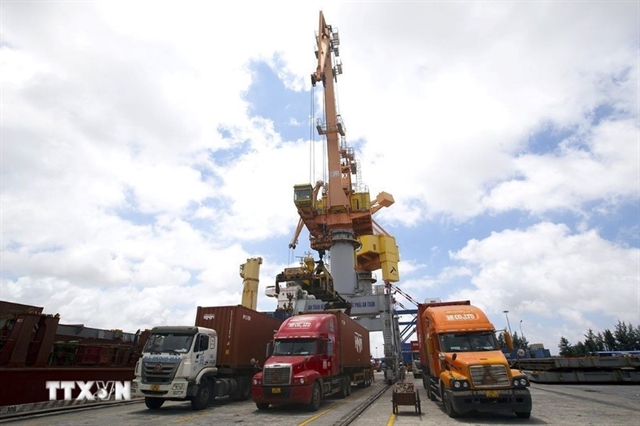
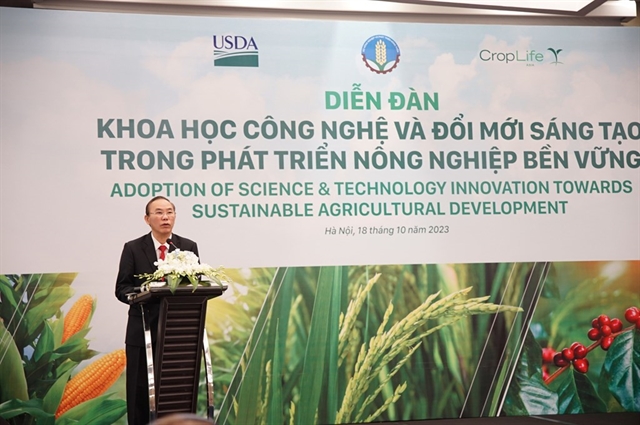 |
| Deputy Minister of Agriculture and Rural Development Phùng Đức Tiến delivers a speech at the workshop on Wednesday. VNA/VNS Photo Bích Hồng |
HÀ NỘI – Việt Nam has targeted to become a nation that produces and supplies transparent, responsible and sustainable food in the near future, Deputy Minister of Agriculture and Rural Development Phùng Đức Tiến said on Wednesday.
To achieve this, Việt Nam is planning to produce green food and an agricultural system with minimal emissions and sustainable practices. This transformation will be facilitated by promoting the development and application of science and technology, innovation in agricultural production, the expansion of public-private partnerships, and a strong focus on applying digital technology within agricultural value chains, he added.
Speaking at the workshop on application of science and technology and innovation for sustainable agricultural development on Wednesday, Tiến said that from being a country facing food shortage, Việt Nam is now among the world's leading food exporting nations.
In the first nine months of 2023, agricultural, forestry, and aquatic product exports reached US$38.48 billion, of which crops accounted for $19.54 billion, making up about 50.8 per cent of the total agricultural export value. The agricultural sector and rural development play a vital role in the country's economic structure and ensure national food security.
These achievements could be largely attributed to the significant contributions of science and technology. From 2020 to 2023, Vietnamese scientists developed 148 recognised crop varieties and 36 technical advances acknowledged by the Ministry of Agriculture and Rural Development (MARD). These innovations have led to increased productivity and improved product quality, ensuring both domestic consumption and exports.
Tiến emphasised that science and technology continued to be essential, contributing over 35 per cent to the success of agriculture in Việt Nam in recent years.
Science, technology and innovation played a crucial role in the sustainable development of the global food system. Improvements in crop varieties, raw materials and new technologies such as biotechnology and advanced precision agriculture tools, including Automatic Identification Systems (AIS) and digitisation, were key to helping farmers adapt more effectively to changing weather conditions. This, in turn, led to higher agricultural productivity with improved product quality and nutritional content, he added.
Tiến said to ensure that farmers had timely and equitable access to these technologies, as well as the responsible use of these tools, a comprehensive and systematic approach was needed. This included strengthening policies that encouraged agricultural innovation based on transparent, scientifically grounded legal frameworks that aligned with international norms.
Ralph Bean, Agricultural Counselor at the US Embassy in Việt Nam, pointed out that the potential of biotechnology in agriculture was substantial. Precise breeding, gene source techniques, increasing nutritional content through biotechnology, and enhancing disease resistance were just a few areas where biotechnology could significantly contribute to agricultural development.
Considering the existing challenges in the agricultural sector such as resource dependency, unstable and unsustainable development, low technology adoption, and the need for increased agricultural productivity, Nguyễn Giang Thu, deputy head of the MARD's Department of Science, Technology and Environment, emphasised that the future growth of the agricultural sector should rely on technology and innovation.
In the near future, science and technology were expected to contribute over 50 per cent of the total growth of the agricultural sector.
Thu said it was crucial to mobilise all available resources to prioritise and develop specific, effective goals and products, as well as increase financial resources for agricultural research. This included investing in various technology sectors, with a special focus on high technology.
Additionally, upgrading and enhancing agricultural infrastructure and adopting digital and circular agriculture practices were essential.
Furthermore, she said, it was necessary to establish mechanisms to promote research and technology transfer in agriculture, enhance the effectiveness of public-private partnerships, and improve the quality of scientific and technological human resources.
During the forum, both domestic and international experts discussed the challenges in research, technology transfer and innovation towards sustainable agricultural development, and identified priorities and directions for research and application in Việt Nam.
As a result, they proposed solutions to promote the research, transfer and public-private cooperation processes to share the benefits of scientific and technological research, application and innovation.
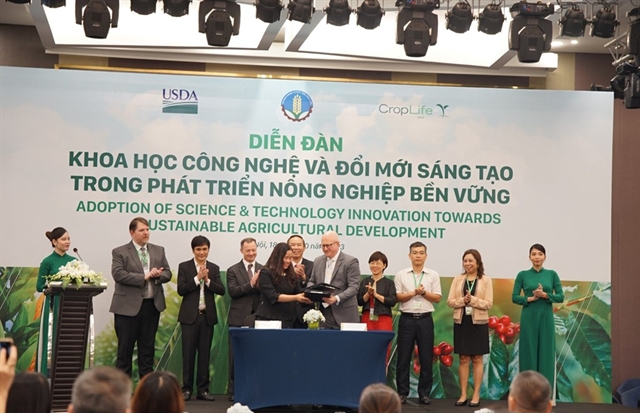 |
| The Department of Science, Technology and Environment and CropLife Asia signed a Memorandum of Understanding on cooperation for applying advanced solutions and technologies in 2023-2030. VNA/VNS Photo Bích Hồng |
On the occasion, the Department of Science, Technology and Environment and CropLife Asia signed a Memorandum of Understanding (MoU) on cooperation to promote research, development and application of advanced solutions and technologies for the period of 2023-2030.
According to the MoU, both parties would boost communication activities, share information, provide policy advice, conduct training sessions, and organise in-depth scientific seminars to update and encourage the application of advanced scientific, technological and innovative solutions in agriculture. They would also support farmers in accessing and applying new scientific advances in agriculture, with the goal of achieving sustainable agricultural development in Việt Nam. – VNS



